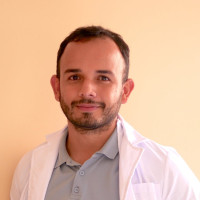Medical Treatment & Drug Development
Pandemics & Infectious Diseases
Antimicrobials, Antibiotics & Drug Resistances
Bacteria & Other Microorganisms
Post-Doctoral Fellowships
Portugal
2011.09.30
Loss of robustness as the key to drug repositioning
We are witnessing the rise of pan-resistant bacteria for which no effective therapy is available. From methicillin-resistant Staphylococcus aureus (MRSA) infections to recent outbreaks of resistant strains of Escherichia coli, these almost or totally pan-resistance bacteria are now reaching the community setting.
The Recycling of Antibiotics
There is a dire need for new classes of antimicrobials. Drug repositioning is the finding of new uses for known drugs. Our lab has developed a new bioinformatics strategy, which enabled the repositioning of a known drug as a potential new class of antibiotic. The underlying scientific question was: what are the conditions necessary for the development of robust biological systems? Theoretical work suggests that robustness should only emerge in unpredictable environments but it remained untested. One source of biological robustness is genetic redundancy, where a given biochemical function is encoded by two or more genes. Our lab showed that bacterial intracellular parasites, which live in a predictable environment, have substantially more singletons than could be expected under any model of gene loss (singletons are genes without duplicates), and that this corresponds to an effective loss of genetic redundancy.
We have refined the previous work by compiling and analyzing an extensive list of sequenced parasites along with other information such as taxonomic classification, facultative vs. obligate nature, specific intracellular replication niche. This research led to the hypothesis that intracellular parasites will adapt to one of four different intracellular replication niches. To test this, we built a bioinformatics pipeline that revealed a core set of protein families/domains that characterize bacterial parasites that inhabit in phagolysosomes. These proteins represent fragile functions for a wide range of pathogens. Furthermore, we developed a predictor (80% accuracy) that is able to identify parasites capable of replication in phagolysosomes.
Furthermore, using a bioinformatics approach, we were able to identify three known drugs that should act upon these fragile functions. These drugs could have an extensive range: from Staphylococcus aureus to Mycobacterium tuberculosis. We are currently submitting our theoretical results to experimental validation.
To add or modify information on this page, please contact us at the following address: community.research@axa.com

Pedro
COELHO
Institution
Fondation Calouste Gulbenkian
Instituto Gulbenkian de Ciência (IGC)
Country
Portugal
Nationality
Portuguese
Related articles
Medical Treatment & Drug Development
Terresterial Biodiversity
Agriculture, Crops & Soil Health
Biotech- and Nanotechnology
Insects & Microorganisms
Vaccines
Post-Doctoral Fellowship
Argentina
Harmless and Eco-Friendly Solution as an Alternative to Replace Synthetic Agrochemicals
Agrochemicals were introduced to protect crops from pests and enhance crop yields. However, they have become a long-standing concern due... Read more

Johan
RODRIGUEZ MELO
Instituto de Agrobiotecnología del Litoral
Mental Health & Neurology
Pandemics & Infectious Diseases
Women's Health
Covid-19
Mental Disorders, Anxiety & Depression
Pregnancy & Maternal Health
Neurodevelopmental Disorders
AXA Award
Spain
2020.08.31
The Effects of the COVID-19 Pandemic on the Mental Health of Mothers and Newborns
Early results are expected in less than 12 months and will help bridge a critical gap in research. Indeed, “in... Read more

Maria
FORASTER
